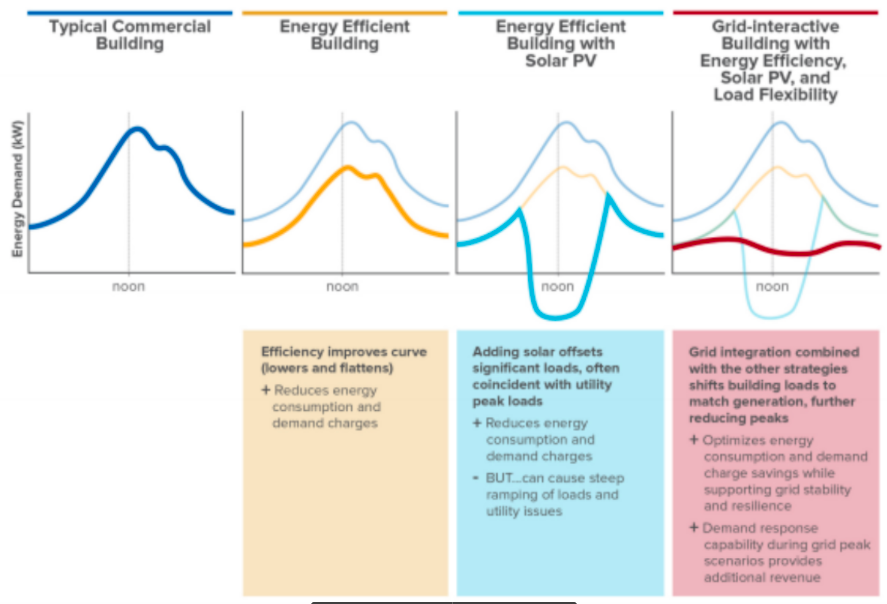JEREMY LYTLE, MASc
Improving Performance and Scalability of Onsite Renewable Energy using Building-Level Microgrids
Read the full Master Research Paper HERE.
Onsite renewable energy systems are important components of sustainable buildings due to their ability to offset increasing electricity demand, aid in grid decarbonization, and provide energy resilience at the point of consumption. However, typical approaches to design and integration often fail to capitalize on these potential benefits and are ultimately limited in achievable penetration due to a variety of barriers. In this work, building-level microgrids are assessed as an alternative integration mechanism for onsite renewables, which may overcome many barriers to implementation. Key design variables including load segmentation, battery control and generator diversification are evaluated in a simulation-based comparative analysis of performance across grid integration and resilience. Results show that isolated microgrid topologies improve the grid integration performance of a building with onsite renewables across metrics including peak load, ramp rates and generation multiple. It is also shown that renewable microgrids can be leveraged to provide reliable energy resilience, and battery control strategies employing predictive charging and adaptive reserve capacity management can enhance energy resilience with limited storage capacity. Ultimately, the work suggests that the design focus and capital allocation for renewable energy systems in buildings should shift from purely net-zero energy targets, towards delivering more holistic benefits to both the building occupants and the broader power system.
Improving Performance and Scalability of Onsite Renewable Energy using Building-Level Microgrids
Read the full Master Research Paper HERE.
Onsite renewable energy systems are important components of sustainable buildings due to their ability to offset increasing electricity demand, aid in grid decarbonization, and provide energy resilience at the point of consumption. However, typical approaches to design and integration often fail to capitalize on these potential benefits and are ultimately limited in achievable penetration due to a variety of barriers. In this work, building-level microgrids are assessed as an alternative integration mechanism for onsite renewables, which may overcome many barriers to implementation. Key design variables including load segmentation, battery control and generator diversification are evaluated in a simulation-based comparative analysis of performance across grid integration and resilience. Results show that isolated microgrid topologies improve the grid integration performance of a building with onsite renewables across metrics including peak load, ramp rates and generation multiple. It is also shown that renewable microgrids can be leveraged to provide reliable energy resilience, and battery control strategies employing predictive charging and adaptive reserve capacity management can enhance energy resilience with limited storage capacity. Ultimately, the work suggests that the design focus and capital allocation for renewable energy systems in buildings should shift from purely net-zero energy targets, towards delivering more holistic benefits to both the building occupants and the broader power system.
